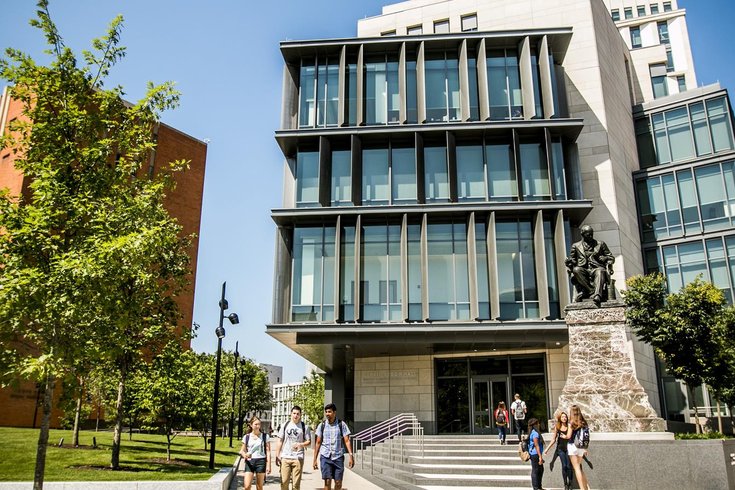
October 07, 2023
 Provided Image/Drexel University
Provided Image/Drexel University
Drexel University will establish a real estate institute within the Lebow College of Business. The Wilbur C. Henderson Real Estate Institute will allow students to co-invest in the university's development projects with a fund set up from a $10 million donation.
Drexel University is establishing a real estate institute within its Lebow College of Business that will involve students in the school's future development projects.
The Wilbur C. Henderson Real Estate Institute, funded by a $10 million donation from the Wilbur C. and Betty Lea Henderson Foundation, will create a fund that allows students to co-invest in projects with the university and partake in property management and analysis. A fund also will be created to help kick-start real estate projects.
Drexel said the institute will serve as a place for students studying in its real estate development management program to train in the industry while advancing the university's commitment to developing the campus and community for civic engagement. The university's real estate program was established in 2017.
"Our advocacy, partnership-building, and stewardship have created a pathway for support to reach our West Philadelphia community, which has already resulted in improved funding for schools and small businesses," said Vibhas Madan, dean of Lebow College.
Madan hopes the institute will collaborate on future property developments with the Lindy Institute for Urban Innovation, the College of Engineering and the Close School of Entrepreneurship.
"By leveraging our network of faculty and corporate partners, the Wilbur C. Henderson Real Estate Institute will prepare students to address a wide array of challenges – from the ramifications of climate change on the design of homes, workplaces, and cities to the way automation, big data and remote commerce revolutionize how real estate is bought, sold, managed and used," Madan said.
Wilbur C. Henderson was a 1947 Drexel graduate and a real estate developer in the Philadelphia region. The Henderson Group's developments include the Philadelphia Airport Business Center.
Villanova University was the first school that allowed undergraduate students to manage a real estate investment fund. Through the DiLella Mulroy Fund, students can evaluate potential development opportunities and accept liability for projects and properties.
Drexel is searching for a dean to lead the institute, which it plans to open in 2024.
There is a history of gentrification in West Philadelphia and University City. The Urban Renewal Program, which was started to improve areas with blight in the city, led to the displacement of Black and brown residents who lived in that section of the city.
Starting in the late 1940s, areas near Drexel and the University of Pennsylvania were included in that plan. A decade after the Urban Renewal Program was created, the West Philadelphia Collaboration was established to spur the creation of the University City Science Center within a redevelopment zone that mostly included the city's Black Bottom neighborhood.
The Black Bottom neighborhood was a significantly Black area of West Philly with 3,432 people living there, but in 1968, eminent domain forced 2,653 residents, 78% of whom were Black, out of the neighborhood.
Since then, a process named Penntrification, Penn Drexel, and other real estate developers have purchased properties in University City, pushing residents out of the area.
In July 2021, developers IBID Associates said it was not going to renew its HUD contract with the University Townhomes, ending four decades of affordable housing at the site. Under HUD contracts, tenants only have to pay 30% of their rent, with housing choice vouchers covering the difference. Many residents who had lived in their homes for decades struggled to find new permanent housing following the decision.
After years of back-and-forth, IBID and the townhome residents reached a settlement in April to transfer nearly a half-acre of the property to Philadelphia so the city can build 70 new affordable housing units there.
Drexel President Jon Fry has made a promise to its University City neighbors that its development projects will not disrupt families in the area.
Development projects like Schuylkill Yards, 7 million square feet of high-end offices, research labs, and retail space.
The average price of a home in University City has ballooned from $78,500 in 1995 to nearly $500,000 in 2018, according to WHYY.